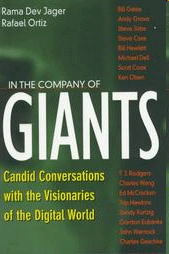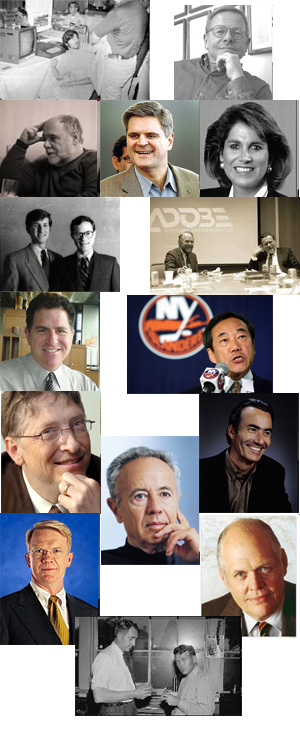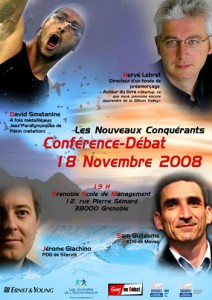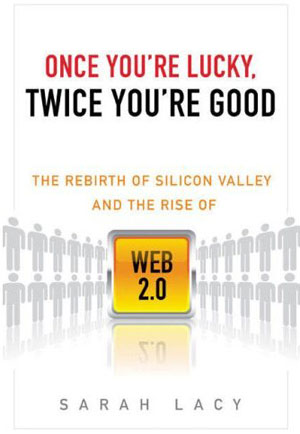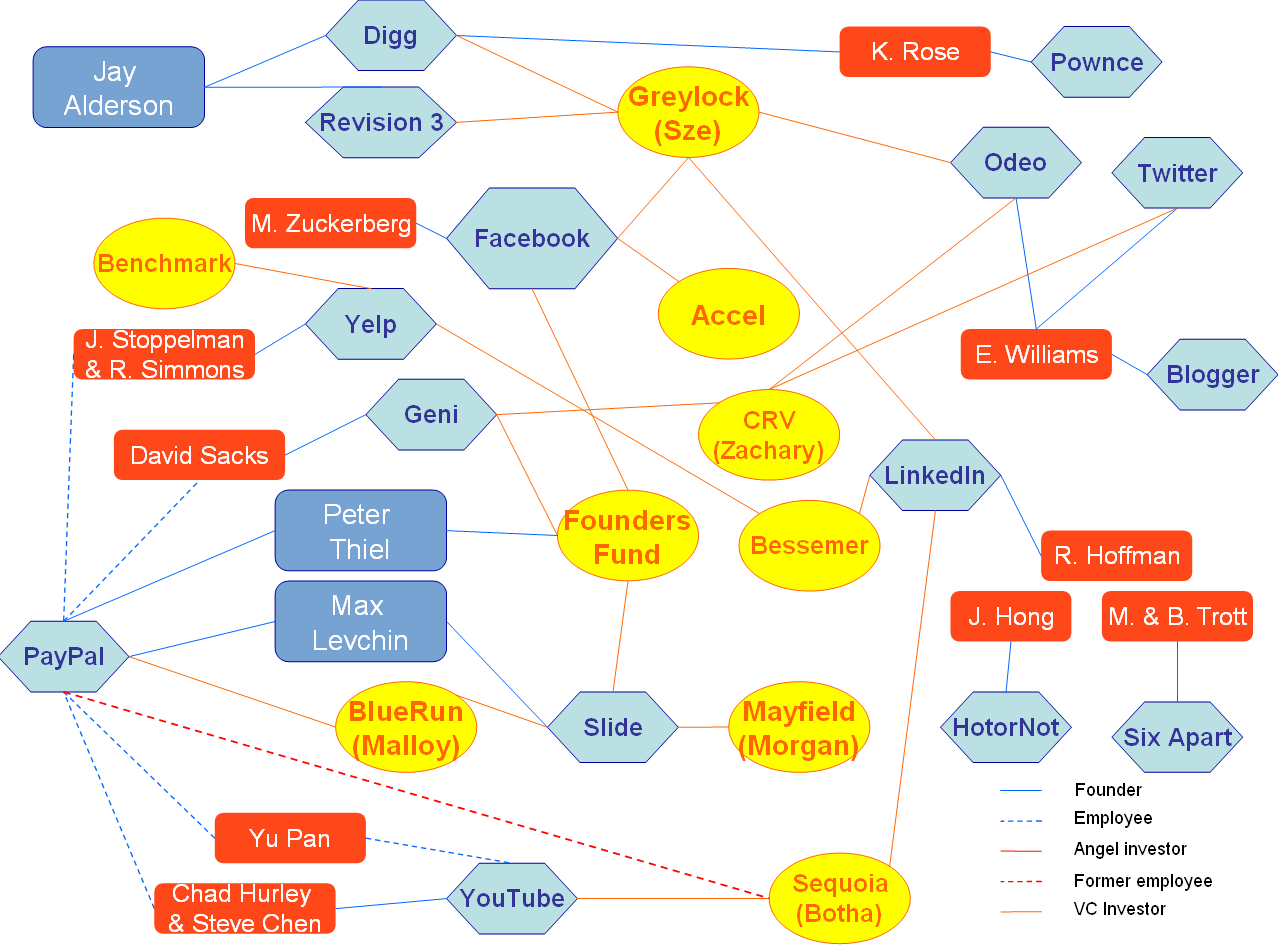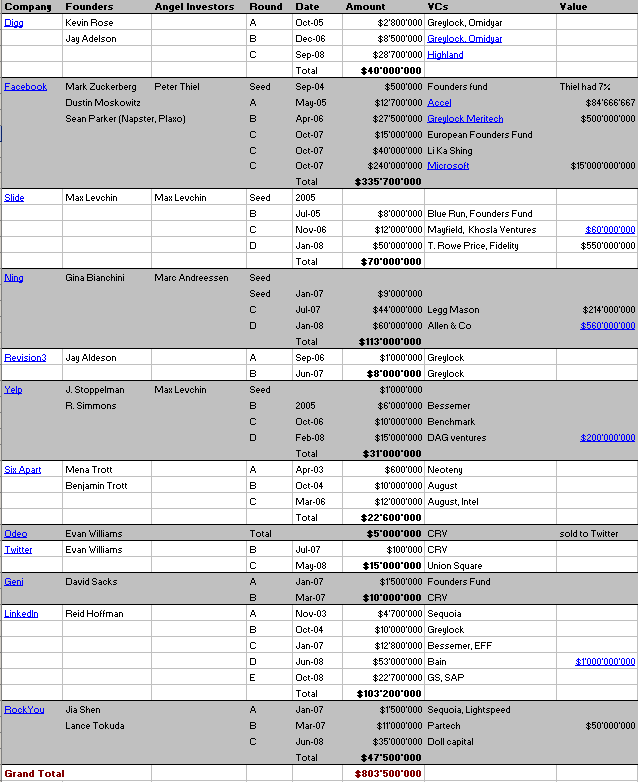I had read In the Company of Giants in 1997 just before becoming a venture capitalist. Then when I began to read again about entrepreneurs, I just could not find it anymore and had to buy it through the reseller network of Amazon. It is as interesting as my previous posts (Once You’re Lucky, Betting it All, Founders at Work).
I will let you link the names and quotes with the pictures if you have time!
Steve Jobs: “In the early days, we were just trying to hire people that knew more than we did about anything and that wasn’t hard because we didn’t know a lot. Then your perspectives are changing monthly as you learn more. People have to be able to change.”
T. J. Rodgers (Cypress Semiconductor): “the standard entrepreneurial answer is frustration. You see a company running poorly, you see that it could be a whole better. Intel and AMD were arrogant. If you think about it, any billion dollar company, that has so much money to spend on R&D should be unassailable. But the large companies routinely cannot crunch little companies so something’s got to be wrong.”
Gordon Eubanks (Symantec): “What makes a company successful is people, process, product, and passion. You must have great people and product and passion balanced by process.”
Steve Case (AOL): “Do something you really love, you are passionate about. Take a long-term view, be really patient. There are going to be bumps on the road.”
Scott Cook (Intuit): “People [customers] won’t tell you what they want. Often they can’t verbalize it because they don’t understand things they’ve not seen. You must understand fundamental motivations and attitudes.”
Sandy Kurtzig (ASK): “I did not see it as incredible risk. Many entrepreneurs would tell you why it was obvious to do what they did. When you have nothing, you have nothing to lose. That’s why so few entrepreneurs can do it a second time. Even Jim Clark did not really start Netscape or Jobs did not really start Pixar. They funded it. You need other people to be hungry… Believe in yourself, surround yourself with good people, be willing to make mistakes, don’t get wrapped up in your success. You are still the same person you were when you started.”
John Warnock and Charles Geschke (Adobe): “Actually there was the very first business plan, then there was the second business plan, and then the third business plan; we never actually wrote the third business plan.”
Michael Dell: “It did not seem risky to leave school because I was already earning obscene amounts. The worst thing that could happen is I would return to school. The greater risk was to stay at school.”
Charles Wang (Computer Associates): “Managing is not just telling people what to do, but it is leading by doing. Know your strengths and weaknesses and complement yourself. Be realistic and objective. Surround yourself with great people.”
Bill Gates: “It’s mostly about hiring great people. We are [in 1997] 18,000 people and still the key constraint is bringing in great people. We naively thought there were guys who could tell us we weren’t doing things the best way.”
Andy Grove: “I can’t look at a startup as an end result. A startup to me is a means to achieve an end.”
Trip Hawkins (Electronic Arts): “You don’t have an objective, rational process. You need a certain amount of confidence. There are many things that you don’t know will go wrong. If you knew in advance all the things that could go wrong, as a rational person, you wouldn’t go into business in the first place.”
Ed McCracken (Silicon Graphics): “My venture capital friends tell me that many of the ideas they’re seeing for new businesses are coming from people under 26 years old.”
Ken Olsen: “Business school’s goal today is to teach people to become entrepreneurs. I think it’s a serious mistake. You learn first how to be a team member, then a leader.”
Bill Hewlett: “It was 1939 and it was no time to start a company. It was probably the supreme optimism of youth.” and “It’s not all due to luck, but certainly a large percentage of success is. We were in the right place at the right time. We were lucky and we had wonderful teachers and mentors. HP didn’t start in a vacuum.”

